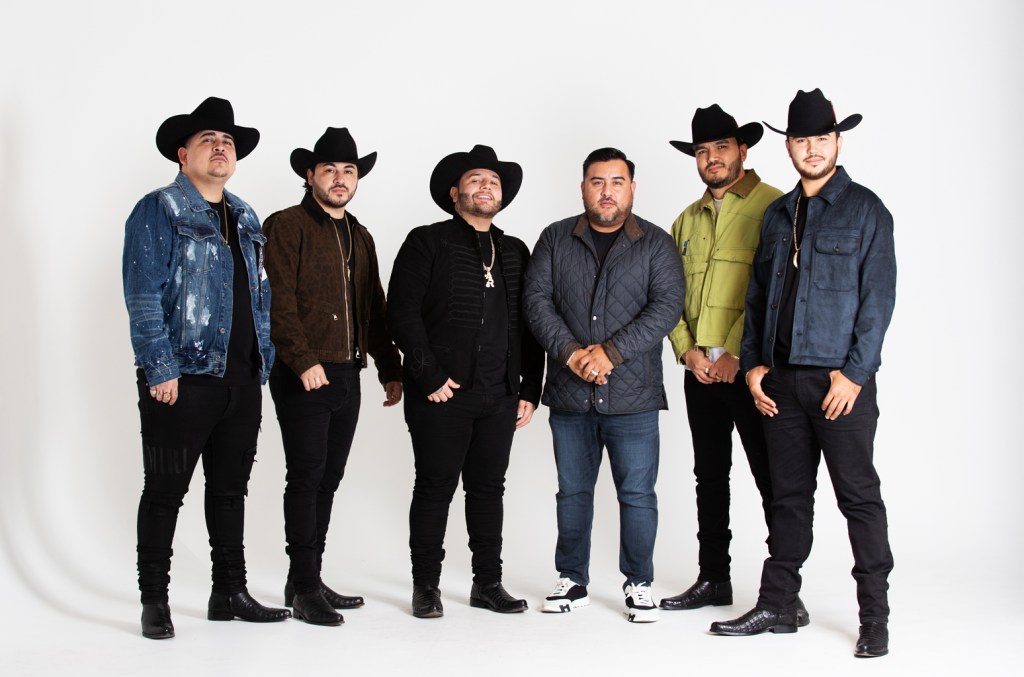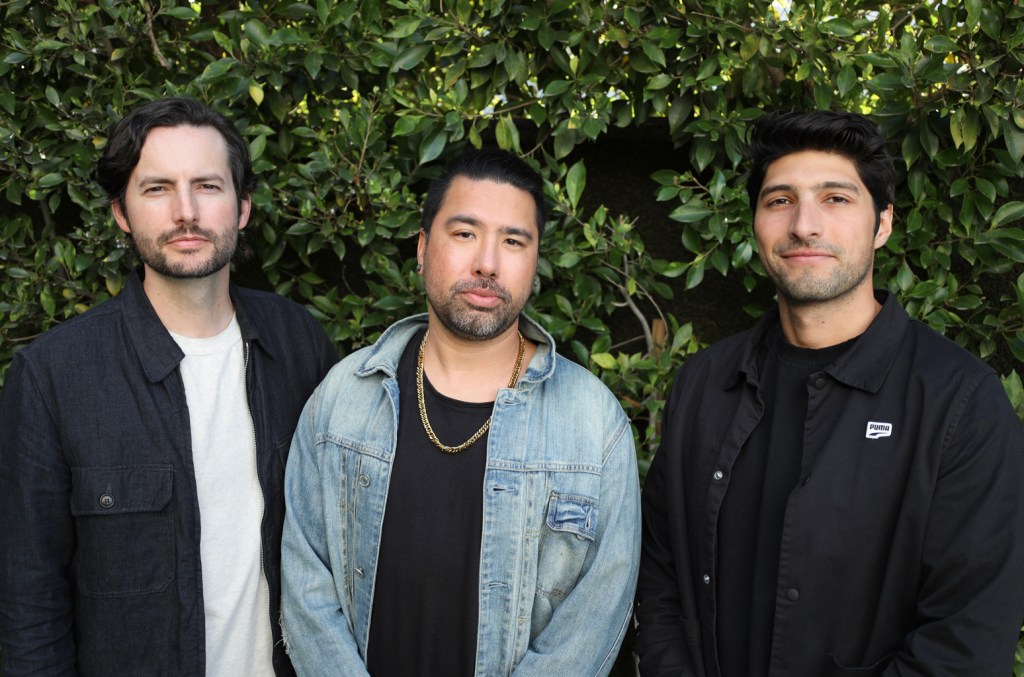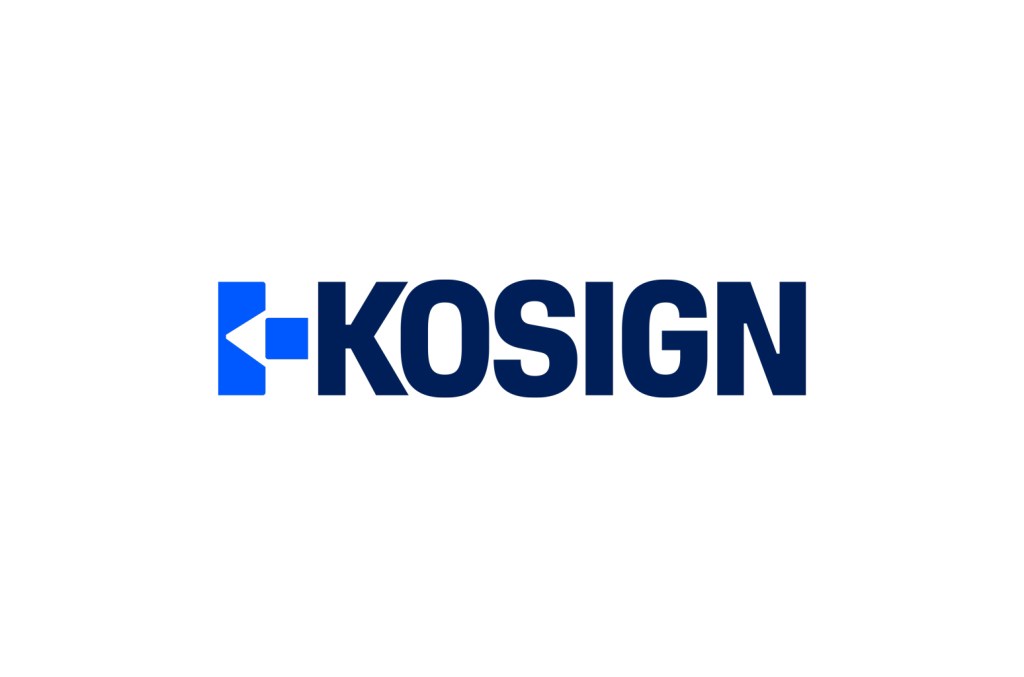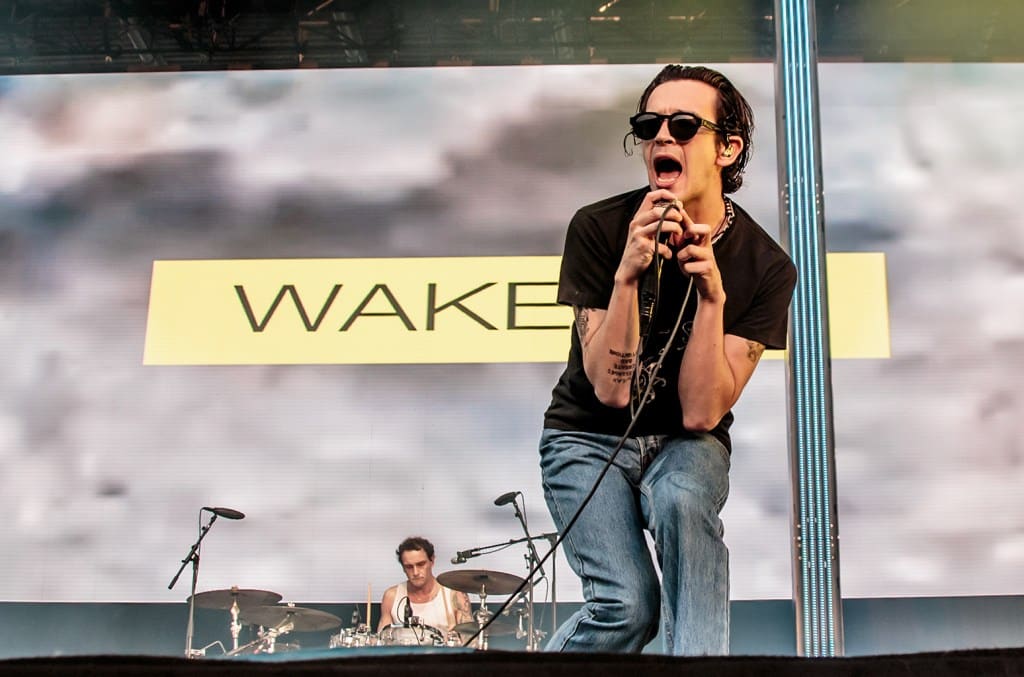Business
Page: 115
The Federal Communications Commission (FCC) is scrutinizing iHeartMedia’s upcoming iHeartCountry Festival in Austin as part of an investigation into whether radio stations have been offering airplay to artists in exchange for free shows.
In a lengthy letter sent Monday (Feb. 24) to iHeartMedia chairman/CEO Robert Pittman, FCC chairman Brendan Carr — who was appointed to the FCC board in 2023 by former President Joe Biden and promoted to chairman via an executive order from President Donald Trump on Jan. 21 — said he “want[s] to know whether iHeart is effectively and secretly forcing musicians to choose between, one, receiving their usual, ordinary, and full scale compensation for performing or, two, receiving less favorable airplay on iHeart radio stations.”
Carr went on to note that “certain owners of federally licensed radio stations are effectively compelling musicians to perform at radio station events or festivals for free (or for reduced compensation) in exchange for more favorable airplay,” a practice he warned violated federal bans on practices like payola.
Trending on Billboard
The letter follows a previous letter sent by U.S. Senator Marsha Blackburn (R-Tenn.) to the FCC earlier this month in which she asked the agency to take action to prevent the alleged practice, claiming it was “critically impacting Tennessee’s content creators.” The FCC subsequently issued an enforcement advisory in which it warned that promising radio play in exchange for free concerts would break federal law. The agency further said it would “consider investigating substantive allegations of payola that come to its attention.”
Traditionally, payola investigations have dealt with music labels and publishing groups paying radio stations to illegally promote commercial music and boost album sales. In 1959, popular radio personalities like Alan Freed were investigated by both the U.S. House and Senate for accepting cash “consulting fees” to play songs on the radio as requested by the shadowy radio promotion industry. In the 1970s, the investigation expanded to include the Italian mafia, whom the FCC accused of using drugs like cocaine for payola. In the 1990s, former NY District Attorney Elliot Spitzer won payola settlements against Sony, BMG and Warner Music, and won a civil lawsuit against Entercom.
Carr’s letter to iHeartMedia hints that the federal government may adopt a novel legal theory that radio promotion concerts, held by large FM radio stations in markets across the U.S., could be a form of payola. Specifically, Carr singles out the May 3 iHeartCountry Festival in Austin, Texas.
Carr’s three-page letter to iHeart included eight lengthy questions he asked Pittman to answer within 10 days. Among other things, Pittman is requesting a list of all artists playing iHeartCountry Festival at Austin’s Moody Center, how much they would normally be paid for a concert appearance and whether any of the artists “will receive better or worse airplay on iHeart radio stations based on their participation in the Festival or the compensation they receive for performing at the Festival.”
In the music business, artists’ appearances are typically delineated into two categories: promotional, or media, appearances, when an artist is promoting a new venture like an album or a film and appears on a talk show to promote that project; and paid appearances, when an artist performs or showcases their talents to audience members who have typically paid some type of admission fee. Artists aren’t usually paid for promotional appearances, and radio concerts have long been categorized by radio stations as promotional in nature and typically do not include payments.
Carr continued that he wants to learn more about the upcoming iHeart concert so that he can get “a real-world example of how such events are put together—including artist solicitation and compensation—and the procedures that are in place to ensure compliance with the relevant statutes and regulations.”
Officials with iHeartMedia responded to the letter in a statement, noting that the company looks forward to “demonstrating to the Commission how performing at the iHeartCountry Festival — or declining to do so — has no bearing on our stations’ airplay, and we do not make any overt or covert agreements about airplay with artists performing at our events.”
The iHeart statement goes on to say, “The iHeartCountry Festival provides the same kind of promotion that that we see with artists on talk shows, late night television, the Super Bowl and in digital music performances and events: the promotional value to the artists is the event itself, and, in our case, is unrelated to our radio airplay.”
This lineup at this year’s iHeartCountry Festival lineup, which is slated for May 3, includes Brooks & Dunn, Thomas Rhett, Rascal Flatts, Cole Swindell, Sam Hunt, Megan Moroney, Bailey Zimmerman and Nate Smith.
Josh Groban signed with CAA in all areas. According to a press release, the singer has sold more than 35 million albums worldwide. In May, he will play an exclusive five-night run at The Colosseum at Caesars Palace in Las Vegas. Groban is managed by Diarmuid Quinn at TourDForce Productions. His attorney is Richard Leher and his publicist is Luke Burland.
Coi Leray signed a recording contract with Epic Records and signed with Cory Litwin at Range Media Partners for management. Leray released the EP What Happened to Forever on Feb. 12. She previously released music on Universal Music Group’s Republic and Island Records.
Armada Music extended its deal with D.O.D with a new long-term agreement. The British DJ/producer just released the single “Wrap Yourself Around Me” featuring NORTH. Armada is also D.O.D’s publisher via its Armada Music Publishing arm.
Trending on Billboard
Spanish electronic artist Judeline signed with WME for representation in all areas. She previously released the EP De La Luz and the album Bodhiria. Last summer, she opened for J Balvin on his European tour and is currently wrapping her second solo tour. Her upcoming set at Coachella will serve as her U.S. festival debut.
The U.K. office of Believe signed deals with three rap artists: SL, Cristal and Strandz. SL signed an artist services deal covering both frontline and back catalog, with the rapper retaining ownership of his masters and creative control. Cristale and Strandz signed distribution deals on frontline releases, with Believe providing label management, editorial and marketing partnerships at DSPs, video and audience development, and synch services.
Singer-songwriter, producer and multi-instrumentalist Cautious Clay (Joshua Karpeh) signed with Concord Records, which recently released his new single “No Champagne (6am).” Concord Music Publishing previously acquired Clay’s catalog in 2024.
Mexican singer Carolina Ross signed a record deal with Fonovisa/Universal after several years as an independent artist. Born in Culiacán, Sinaloa, the artist’s acoustic versions of regional Mexican hits have amassed more than 400 million streams, according to a press release. – Tere Aguilera
Pop-rock group Arrows in Action signed with Nettwerk, which will release the trio’s new album, I Think I’ve Been Here Before, on May 16, with a second installment of the album to follow.
Nettwerk also signed indie-pop artist Your Smith (formerly Caroline Smith) and released her new single “Peaches.”
Warner Music Group signed a global label deal with Japanese dance and vocal boy group PSYCHIC FEVER via Warner Music Japan, in partnership with 10K projects in the U.S. The group will release its first single under Warner Music in June.
Ontario, Canada, band Arm’s Length signed with Pure Noise Records, which will put out the group’s sophomore album, There’s A Whole New World Out There, on May 16. The album is preceded by the single “Funny Face,” which is out now.
Anthony Martini and Rich Barner‘s recently launched Gravel Road Records signed country artist Travis Bolt (“Never Tried Cocaine”). An EP is coming in the spring.
Melbourne-based band Tropical F— Storm signed to indie label Fire Records, which released the group’s new single, “Goon Show.”
DJ Python (Brian Piñeyro) signed to XL Recordings, which will release his forthcoming five-track EP, I Was Put On This Earth, on March 28 as part of the label’s “house bag series.” The first track to be released from the EP is “Besos Robados.”
Triple Tigers Records signed singer-songwriter and Tennessee native Shane Profitt. Profitt earned a top 20 Billboard Country Airplay hit with “How It Oughta Be” in 2023 and previously released the BMLG Records/Harpeth 60 Records project Maury County Line. He is currently in the studio working on new music and is managed by Maverick Nashville Management. The Triple Tigers Records roster also includes Scotty McCreery, Russell Dickerson and Jordan Fletcher. – Jessica Nicholson
Sony Music Nashville signed Latina country singer-songwriter Kat Luna. Luna was previously part of the duo Kat & Alex and has since released solo music including “That Girl” and “Happiest I’ve Ever Been.” She is prepping new music with producer Nathan Chapman and is represented by Neon Coast for management, UTA for booking and Warner Chappell Nashville for publishing. – Jessica Nicholson
Korean rock artist LØREN signed with L.A.-based label AYLA. LØREN previously worked as a songwriter on BLACKPINK’s The Album, including the tracks “Pretty Savage,” “You Never Know” and “Lovesick Girls.”
Warner Classics signed the all-women vocal ensemble Lyyra. The first release under the deal will be a digital single of Vienna Teng’s song “Hymn of Acxiom,” which will be released on March 7 to celebrate International Women’s Day.
A Missouri woman has pleaded guilty to mail fraud for her role in an alleged scam to steal the Elvis Presley family’s ownership interest in the famed Graceland mansion. Lisa Jeanine Findley, who has gone by various aliases including Lisa Holden and Lisa Howell, initially pleaded not guilty to mail fraud and aggravated identity theft […]
Sacramento’s newest music venue, Channel 24, has announced its inaugural lineup as it prepares to open its doors this spring. Opening the venue for its first official show on April 24 is young country music artist Tucker Wetmore — Billboard‘s Country Rookie of the Month in May 2024 — whose debut single, “Wind Up Missin’ […]
Smart Music Group (SMG) has entered into a contract with Grupo Arriesgado, Billboard Español can exclusively reveal Tuesday (Feb. 25). Co-founders and artist managers, Raczon López and Natalia Corona — also honorees on last year’s Latin Power Players list — have launched a new label focusing on this five-member band that is currently gaining traction on social media platforms.
Originally formed in late 2013 on a ranch named Costa Rica in Culiacán, Sinaloa, and initially led by former frontman turned soloist Panter Bélico, Grupo Arriesgado gained popularity with hits such as the accordion-infused “Jimenez” (2021), “El H,” and “Enloquecido” (2022). With César Alfonso stepping in as the new lead vocalist, they have secured significant radio play and impressive digital platform statistics, amassing 4.7 million monthly listeners on Spotify and maintaining a vigorous schedule of live performances.
Their digital presence is equally robust with 882,000 followers on Instagram, 1.1 million followers and 23.8 million likes on TikTok, and a strong YouTube following with 472,000 subscribers and over 600 million views. Jesús Cuadras (electric bass), César Soto (bajo sexto), Alfonso Rodríguez (second voice) and Ángel de León (drums) also make up the band.
Trending on Billboard
“Our relationship with Grupo Arriesgado began with the promotion of their three most recent releases, which allowed us to increase their audience on Spotify to almost 5 million monthly listeners and accumulate 35 million views on the main platforms,” López tells Billboard. “For this reason, the group wanted to take its relationship with Smart Music Group (SMG) to the next level and we have signed an agreement that makes us their representatives.”
He adds: “From now on, we will provide a comprehensive strategy that combines digital growth with presence in traditional media. This work will consolidate Grupo Arriesgado as one of the most important groups in regional Mexican.”
López and Corona have recently managed the 2024 global breakout star Xavi, who topped Hot Latin Songs with “La Diabla” and secured the No. 2 spot with “La Víctima” on the same chart, and other notable achievements. Under the pair’s management, Xavi also clinched the Artist of the Year (New) award at the 2024 Billboard Latin Music Awards. The duo also managed newcomer Drian.
With this new partnership, Grupo Arriesgado has embarked on a fresh phase with the release of “De Aquí Soy” (2025) and “Qué Chulada” (2024), two singles that mark a shift toward a more romantic and melodic style.
Listen to “De Aquí Soy” below.
Breakaway, the company behind the touring dance event Breakaway Music Festival, is launching a label and management division focused on emerging artists called Breakaway Projects. The first wave of signees to the label, which is partnered with The Orchard for distribution, includes a fresh collection of electronic producers such as Surf Mesa, Jaded, Evan Giia, […]
“The middle class is growing, and it’s only going to accelerate with AI,” says Laurent Hubert, CEO of Kobalt. It’s a sentiment that’s widely held in the music industry today and one that’s backed by hard data. According to Luminate’s Midyear Music Report for 2024, the number of mid-tier artists — those earning between 1 million and 10 million on-demand audio streams — grew to 29,253, a 5.1% increase from the first half of 2023 to the first half of 2024. That number is set to grow even more in the coming year.
Though the recorded music sector has already moved fast to capture the value amassed by these middle-classers by creating or acquiring distribution and artist services companies, the publishing industry has yet to do the same. Currently, there are DIY songwriter administration services, like Songtrust and Sentric, that automate practically all services and are open for anyone to sign up for a one-year minimum term; and traditional music publishers — like the majors, Kobalt and other indies — that selectively offer advances and sometimes take a piece of copyright ownership in exchange.
Trending on Billboard
But as Jacob Paul, director of creative strategy at Kobalt, stresses, “there’s a lot of people in-between. The middle class is growing year on year, and yet this community is still locked out of publishing earnings because publishing is so complicated.” Enter: KOSIGN, Kobalt’s new platform targeting the creator middle class. Whether it’s an anti-establishment-minded songwriter who wants to be independent forever, a fast-rising singer-songwriter who wants to hold for another year before signing a traditional deal, or a seasoned vet who needs a place to collect their royalties in between publishers, KOSIGN promises to be a high-tech, transparent solution for those with about $5,000 or more to collect. It’s not for the “long, long tail” says Paul, but it’s not just for bankable stars either.
There’s no advance, but there are also no strings attached. A KOSIGN agreement operates on a rolling quarterly basis, can be used on a partial or full catalog, and features an 80% writer/20% publisher royalty split. And some KOSIGN writers will have the ability to upstream to Kobalt if desired.
For the Kobalt team, it feels like a win-win. With KOSIGN, “underserved artists,” as Jeanette Perez, president/CCO, puts it, have the ability to collect royalties that are nearly impossible to collect without a publishing partner, while Kobalt captures value from middle-class talent and forges bonds with tomorrow’s stars before its competitors are even looking. “We’ve found the market is chomping at the bit for this type of solution,” says Paul. “The inbound interest for KOSIGN is already incredible.”
What sparked the idea for KOSIGN?
HUBERT: We looked at the market and what we’ve seen in recorded music is that there was a large market [of up-and-coming artists] that was being serviced by distribution companies but there was no equivalent on the publishing side. We saw an opportunity to target an underserved market, and it is one that is also growing. We believe that AI will also flex that. We said that we have to be in this space. We have the capabilities from what we’ve built over the last 20 years. We have a best-in-class platform, and the idea was to… provide that service to a market that deserves [more help.]
Kobalt was the original home of AWAL, one of the biggest success stories in the artist services/distribution market today and now home to talent like Laufey, Jungle, Djo and more. In 2021, Kobalt sold AWAL to Sony Music. What did you learn from building AWAL that could apply to KOSIGN, which also targets a similar demographic of music creators?
HUBERT: What was interesting with AWAL is we really designed this not as a label service business but as an artist service business, so really focusing on the need of the creator. In that particular case, it was the artist. With KOSIGN, it’s the writer. We learned from AWAL that we had to find a path to minimize friction, and also, we needed to learn how to speak to that audience. It’s a different audience than your traditional one.
PEREZ: One of the theses behind AWAL, even back then, was this growing middle class of artists. That has just held through year after year. That is something else that we ported into the thesis for KOSIGN. The other important thing then and now is the idea that you can give artists flexibility.
It seems that the recorded music side of the industry has gone all-in on companies like AWAL — the artist service companies — since that flexibility is what many middle-class or rising artists want. To date, there has not been a good equivalent on the publishing side. Why do you think that is?
PAUL: The advantage Kobalt has had is that we’ve always been a service company. We’ve always been oriented that way. Because when we first launched, even 25 years ago, we weren’t launching on a model of copyright acquisition. I think traditionally, the publishing industry was predicated on the idea of acquiring copyrights and not necessarily the idea of servicing, but for Kobalt, even at its first founding, we started with the idea that we’d have admin deals, and we’re gonna have three-year terms.
At Kobalt, every three years, we have to re-earn [our writers’] trust so that they stay here. We’re not 50% owners of their copyrights. So I think Kobalt already had the service orientation, and I think that’s what helped us to view this middle market as a group to be serviced and not a group to merely be acquired.
PEREZ: Scaling a publishing platform is much more challenging than scaling a recorded music distribution platform. The number of sources you have to collect from on the publishing side is tenfold what you have to collect from on the recorded music side. You have to have an infrastructure and a foundation to then unlock that.
HUBERT: The challenge is that we have to manage the complexity [of publishing collections] in a way that still works on a pure unit economics as you go down the deal curve. We’ve been able to do that. It requires enormous amounts of resources.
There are some options on the market for DIY songwriters today, including Songtrust and Sentric, but unlike KOSIGN, these companies are open to all and really target the smallest creators. What did you learn from watching those companies develop?
PAUL: One thing that we’ve learned is that being open to everyone and prioritizing openness and volume doesn’t work from a scalable service perspective. That’s never been our interest. That’s a key difference between KOSIGN and others who are in this space. We very much want to be accessible in the sense that it’s extremely easy to apply and to join, you can get going very quickly, but we’re not really interested in touching the long tail where, frankly, there isn’t enough out there to collect to justify a Kobalt level of service. That’s the critical difference. It’s what allows us to not compromise on the level of core admin service that we’re providing.
There’s some other critical differences. One is our infrastructure, which we believe remains best in class. We think that client experience, the actual going-onto-the-portal, and the beauty and simplicity of the [app], is peerless. And then the last thing I would say is that when you look at the publishing terms of service for KOSIGN, we truly think that they’re the most flexible in the industry. Our goal here is to have something that’s not only simple to use and simple to understand but is truly simple from a deal perspective.
How does KOSIGN provide a competitive advantage for Kobalt?
PAUL: We really look forward to seeing KOSIGN as a pipeline for Kobalt in cases where it is right for the artist… KOSIGN allows us to open a door much earlier and much more often. We’re in a landscape creatively where access to the tools to create the next hit are more available than ever, and we see important artist stories and song stories accelerating really quickly these days, and it’s hard to predict where they’re going to come from. KOSIGN allows us to open the funnel.
HUBERT: It also reinforces our core value of empowerment. We created the business over 25 years ago to empower songwriters, and that’s what we’re doing here, in a way that is going down the deal curve but still aligned with our mission.
PAUL: We’re covering really the full life cycle of the songwriter in one ecosystem now. We don’t think other platforms in the space are able to do that the way that Kobalt and KOSIGN can.
Why do you think that none of the majors ever tried to build their own KOSIGN before you?
HUBERT: First, I don’t see that as being core to their strategy. At least there’s no real sign that this is something that they are focusing on. Number two, as we said earlier, you need to have built the proper infrastructure. If you look at many of the measures, they’re still relying on legacy tech stacks. So I think both strategically and operationally, this would present a challenge. It doesn’t mean that they could never get into that space. It would be naive to think that, but also, we have always built a business based on service, not on ownership. This only works when you really do it on a pure service level.
PEREZ: We are, in comparison to other players in the market, a fairly young company. We can still behave as a start-up, which enables us to move very quickly and be nimble. We don’t have 100 years of catalog to bring along.
It sounds like the app is quite transparent, but still, publishing is confusing and a lot of artists and writers don’t understand it. When you’re trying to run a lean, mostly automated service platform, I imagine this will be a point of friction. How do you plan to manage customer service and education for KOSIGN signees?
PAUL: There’s three layers to this. One is to build the platform, which we think we’ve done, and we’ll continue to invest in it. It is so beautiful and simple to use [that] in a way, it explains how publishing works by virtue of its design. Two is our messaging to the marketplace. So not only are we investing in the platform, we’re going to invest in educational materials, and we’re going to invest in content to reach up-and-coming artists and songwriters. Three is that we are really investing in the service aspect [of the] platform. So if you have a question, if you need help on the platform, you can go to a very specific place where you can really quickly get resources that we’re constantly going to be buildingto answer questions. And then if that doesn’t go all the way, you still have access to an admin team.
PEREZ: Again, we get to rely heavily on what we already paid to build out for Kobalt. That’s an advantage. There’s something called Kobalt Knowledge which is hundreds of articles about music publishing and navigating the publishing business. All of that will be immediately available to a KOSIGN client. We aren’t starting at zero.
Members of the British band The 1975 cannot be held personally liable for losses of a Malaysian music festival that was shut down by authorities after lead singer Matty Healy kissed a male bandmate on stage, a London judge ruled Monday.
The organizer of the Good Vibes Festival is seeking 1.9 million pounds ($2.4 million) in losses after Healy criticized the country’s anti-homosexuality laws and then kissed bassist Ross MacDonald at the Kuala Lumpur show in July 2023.
Footage of the kiss sparked a backlash in the predominantly Muslim country, where homosexuality is a crime punishable by up to 20 years in prison and caning. Some LGBTQ+ groups also criticized the band for endangering its community and disrupting the work of activists pushing for change.
Trending on Billboard
Future Sound Asia sued The 1975 Productions LLP in the High Court over breach of contract and said its four members owed a duty of care. But the band’s lawyer argued that the suit should only target the company — not the musicians.
Judge William Hansen said the claims against the band members were “bad as a matter of law and that there is no good reason why the matter should go to trial.” He allowed the case to proceed against the company, but ordered FSA to pay 100,000 pounds ($126,000) in legal costs.
Band attorney Edmund Cullen had argued the claim was an “illegitimate, artificial and incoherent” attempt “to pin liability on individuals” because FSA only had a contract with the band’s company.
FSA’s attorney Andrew Burns said authorities had initially refused to let the band perform because of reports about Healy’s drug addiction and subsequent recovery. They relented after the band promised he would follow guidelines and regulations, he said.
When the band played the same festival in 2016, they had agreed not to swear, smoke, drink, take off clothes or talk about religion and politics on stage, Burns said.
Burns said the band deliberately provoked Malaysian authorities in 2023 by smuggling a bottle of wine on stage, and through Healy’s “obscene speech” and the kiss. He said the band also performed a “second-rate set of songs” to upset the crowd.
“They could be argued to have been on a frolic of their own rather than simply acting within the course of their ordinary role as LLP members,” Burns said.
The band was supposed to be paid $350,000 (276,000 pounds) for a one-hour set, Burns said.
The show wasn’t the first time Healy made a political statement in the name of LGBTQ+ rights: he kissed a male fan at a 2019 concert in the United Arab Emirates, which outlaws same-sex sexual activity.
After the show in the Malaysian capital, The 1975 canceled its concerts in Taiwan and Jakarta, Indonesia.
The Malaysian government has blacklisted the band.
This article was originally published by the Associated Press.

 State Champ Radio
State Champ Radio 






